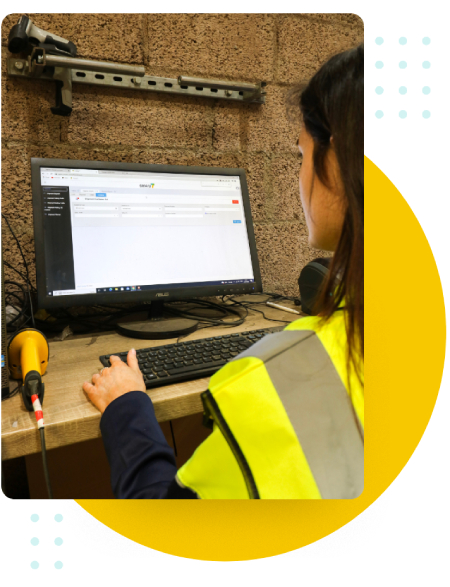1. More order accuracy
Today’s business environment means that you can afford no mistakes. For this reason, order accuracy is important. If you are not looking into order management systems and processing your orders manually, then you are setting yourself up for disaster! This is because manual order processing involves more chances of human error, and hence slows down things to a great extent.
With the help of an order management system, you can achieve order accuracy and evolve the customer experience with insightful, precise details. Especially for eCommerce businesses, OMS software can really help you ensure that you get the information on each and every order right. This also means that OMS eCommerce is the only way you can actively avoid logistical problems and save yourself from losing money on mistakes that could have easily been worked around.
2. Faster pick, pack, and ship processes
If there’s one thing that every shopper expects from a retailer, its speed. Your delivery times have to be fast if you want your customer to come back to you for business – next day if possible! The longer it takes for you to process your orders, the longer it will take for them to arrive, and the worse impression they will have on your customer.
However, thanks to order management systems, you don’t have to worry about any of that. An OMS platform streamlines every single process involved in the fulfilment of an order; from pick and pack to shipping, everything is not only automated, but also tracked so that no hindrances can slow down these processes. Your warehouse order picker will thank you for equipping the warehouse with an order management system, that’s how much of a help it can be. It can improve the general efficiency of warehouse order picking methods, and can also enable multi order picking and packing without a lot of hassle.
With the help of an OMS platform, you can identify the fulfilment centre that is the closest to the delivery location, and then engage that centre to meet the order requirements. Needless to say, this cuts down on the delivery time and you are able to send your products out on time.
3. Increased customer satisfaction
When everything goes well on the order processing side of things, you are automatically setting yourself up for increased customer satisfaction. You need to remember that your customers are used to a smooth and efficient order fulfilment process. All businesses they interact with on a daily basis are constantly striving to make the delivery as smooth for them as possible. Essentially, what this means is that they have a certain standard set when it comes to receiving their orders, and if you want to ensure your success, you must make sure that you are meeting this standard.
Order management systems help you achieve the best sort of customer order management. A good order management system will enable you to give your customers order insights that they like having – for example, tracking information. Customers can track their products from the start of the fulfilment journey right till the end of it, which conveys to them that they are fully in control of the process. This, in turn, raises your brand value in their eyes and increases chances of repeat business.
4. Better inventory forecasting and less stockouts/overstocking
Stockouts are one of the biggest challenges you can face as a retailer, and the lack of good forecasting mechanisms can very be blamed for that. If you don’t forecast your customer demand properly, you are depriving your inventory management processes of the core aspect that aligns it with increased profitability of your products.
Unfortunately, lack of forecasting can very well lead to over-stocking and stockouts. In either of these situations, you are increasing the cost of your business and putting yourself at the risk of losing sales, which is obviously something you should avoid.
Thankfully, work order management software can help you tackle both of these. With the help of an order management system, retailers can get an insight into both their high-selling and low-selling seasons. This means that you can align your inventory with these sales cycles and make sure that popular products are always in stock. It also means that you can tap into consumer trends and make sure that you are not ordering more than what is needed or something that the customer isn’t wholly interested in. All in all, with the help of an order management system, you can greatly improve your inventory management processes as well.
5. Sell your products internationally
No matter how small your business is, the ultimate dream for every business owner is to expand; internationally if possible. And who can blame them? With globalisation at its peak and the global market at its most lucrative, it is understandable that businesses want to tap into a global market.
However, with OMS systems, shipping your products internationally could quickly turn into a nightmare. Afterall, streamlining fulfilment for an international order is no easy task, and there are quite a lot of things that you need to factor in before you commit to this process.
But with the help of order management, you don’t have to worry a lot. A good order management system will not only help you scale up by tackling international orders, but also equip you the digital tools needed to do this. For example, an order management system can easily help you send details forward to 3PL partners you have in any country your customers are in!
Let’s say you have a “Manhattan order management system” because you and your business are based in Manhattan. However, having a Manhattan order management system doesn’t mean that you are restricted to keeping your operations in Manhattan and the US is general! You can very easily expand your business and manage orders from London, Paris, Berlin – just as well as you do for Manhattan.
Again; these benefits of an order management system are simply the tip of the iceberg. There are many other reasons as well that make an order management system an integral component of any business, especially in terms of its development.














